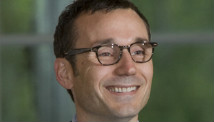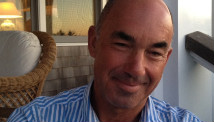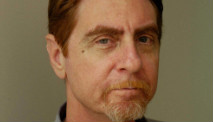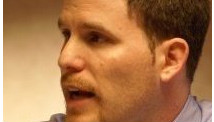ALGIERS (Reuters) - More than 20 foreigners were still being held hostage or missing inside a gas plant on Friday after Algerian forces stormed the desert complex to free hundreds of captives taken by Islamist militants, who threatened to attack other energy installations.
Thirty hostages, including at least seven Westerners, were killed during Thursday's assault, along with at least 18 of their captors, said an Algerian security source.
The attack, which plunged capitals around the world into crisis mode, is a serious escalation of unrest in northwestern Africa, where French forces have been in Mali since last week fighting an Islamist takeover of Timbuktu and other towns.
"We are still dealing with a fluid and dangerous situation where a part of the terrorist threat has been eliminated in one part of the site, but there still remains a threat in another part," British Prime Minister David Cameron told his parliament.
A local Algerian source said 100 of 132 foreign hostages had been freed from the facility. The fate of the other 32 was unclear as the situation was changing rapidly.
Earlier he said 60 were still missing with some believed still held hostage, but it was unclear how many, and how many might be in hiding elsewhere in the sprawling compound.
Two Japanese, two Britons and a French national were among the seven foreigners confirmed dead in the army's storming, the Algerian security source told Reuters. One British citizen was killed when the gunmen seized the hostages on Wednesday.
Those still unaccounted for on Friday included 10 from Japan and eight Norwegians, according to their employers, and a number of Britons which Cameron put at "significantly" less than 30.
France said it had no information on two Frenchmen who may have been at the site and Washington has said a number of Americans were among the hostages, without giving details. The local source said a U.S. aircraft landed nearby on Friday.
Some countries have been reluctant to give details of the numbers of their missing nationals to avoid disclosing information that may be useful to their captors.
As Western leaders clamored for news, several expressed anger they had not been consulted by the Algerian government about its decision to storm the facility.
The sprawling facility housed hundreds of workers. Algeria's state news agency said the army had rescued 650 hostages in total, 573 of whom were Algerians.
"(The army) is still trying to achieve a ‘peaceful outcome' before neutralizing the terrorist group that is holed up in the (facility) and freeing a group of hostages that is still being held," it said, quoting a security source.
MULTINATIONAL INSURGENCY
Algerian commanders said they moved in on Thursday about 30 hours after the siege began because the gunmen had demanded to be allowed to take their captives abroad.
An Irish engineer who survived said he saw four jeeps full of hostages blown up by Algerian troops.
A French hostage employed by a French catering company said Algerian military forces had found some British hostages hiding and were combing the sprawling In Amenas site for others when he was escorted away by the military.
"I hid in my room for nearly 40 hours, under the bed. I put boards up pretty much all round," Alexandre Berceaux told Europe 1 raid. "I didn't know how long I was going to stay there ... I was afraid. I could see myself already ending up in a pine box."
"When Algerian solders ... came for me, I didn't even know it was over. They were with some of my colleagues, otherwise I'd never have opened the door."
Western governments are trying to determine the degree to which the hostage taking was part of an international conspiracy and was linked, as the captors claimed, to the week-old French military intervention in neighboring Mali.
The Algerian security source said only two of 11 militants whose bodies were found on Thursday were Algerian, including the squad's leader. The others comprised three Egyptians, two Tunisians, two Libyans, a Malian and a Frenchman, he said.
Algeria state news agency APS said the group had planned to take the hostages to Mali.
The plant was heavily fortified, with security, controlled access and an army camp with hundreds of armed personnel between the accommodation and processing plant, Andy Coward Honeywell, who worked there in 2009, told the BBC.
U.S. Defense Secretary Leon Panetta said those responsible would be hunted down: "Terrorists should be on notice that they will find no sanctuary, no refuge, not in Algeria, not in North Africa, not anywhere," he said in London. "Those who would wantonly attack our country and our people will have no place to hide."
MALI WOES
The crisis posed a serious dilemma for former colonial power Paris and its allies as French troops attacked the hostage-takers' al Qaeda allies in Mali, another former colony.
The desert fighters have proved to be better trained and equipped than France had anticipated, diplomats told Reuters at the United Nations, which said 400,000 people could flee Mali to neighboring countries in the coming months.
In Algeria, the kidnappers warned locals to stay away from foreign companies' oil and gas installations, threatening more attacks, Mauritania's news agency ANI said, citing a spokesman for the group.
Algerian workers form the backbone of an oil and gas industry that has attracted international firms in recent years partly because of military-style security. The kidnapping, storming and further threat cast a deep shadow over its future.
Hundreds of workers from international oil companies were evacuated from Algeria on Thursday and many more will follow, BP, which jointly ran the gas plant with Norway's Statoil and the Algerian state oil firm, said on Friday.
The overall commander of the kidnappers, Algerian officials said, was Mokhtar Belmokhtar, a veteran of Afghanistan in the 1980s and Algeria's bloody civil war of the 1990s and one of a host of Saharan Islamists, flush with arms and fighters from the 2011 civil war in Libya. He appears not to have been present.
Algerian security specialist Anis Rahmani, author of several books on terrorism and editor of Ennahar daily, told Reuters about 70 militants were involved from two groups, Belmokhtar's "Those who sign in blood", who travelled from Libya, and the lesser known "Movement of the Islamic Youth in the South".
"They were carrying heavy weapons including rifles used by the Libyan army during (Muammar) Gadaffi's rule," he said. "They also had rocket-propelled grenades and machineguns."
Algeria's government is implacably at odds with Islamist guerrillas who remain at large in the south, years after the civil war through the 1990s in which some 200,000 people died.
Britain's Cameron, who warned people to prepare for bad news and who cancelled a major policy speech on Friday to deal with the situation, said he would have liked Algeria to have consulted before the raid. Japan made similar complaints.
U.S. officials had no clear information on the fate of Americans, though a U.S. military drone had flown over the area. Washington, like its European allies, has endorsed France's move to protect the Malian capital by mounting air strikes last week and now sending 1,400 ground troops to attack Islamist rebels.
The apparent ease with which the fighters swooped in from the dunes to take control of an important energy facility, which produces some 10 percent of the natural gas on which Algeria depends for its export income, has raised questions over the value of outwardly tough security measures.
(Additional reporting by Ali Abdelatti in Cairo, Eamonn Mallie in Belfast, Gwladys Fouche in Oslo, Mohammed Abbas in London and Padraic Halpin and Conor Humprhies in Dublin; Writing by Philippa Fletcher; Editing by Peter Graff)








